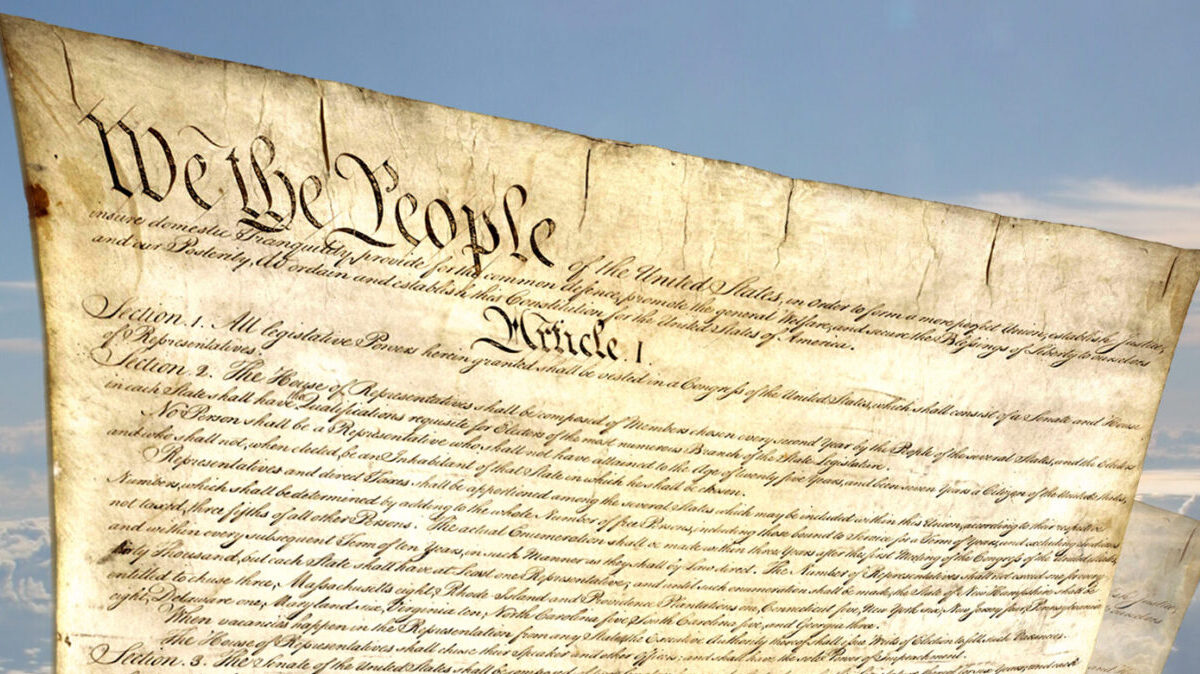We live in an age that rejects incrementalism — the slow improvement of society through small but steady reforms. Instead, groups ranging from Black Lives Matter to dispirited conservatives now contemplate a “national divorce.” We hear of the need for drastic measures — revolution, societal upheaval, Build Back Better, or whatever you want to call it. Don’t pray for patience; make revolutionary plans.
But history is what happens when you’re busy making other plans.
A new historical fiction book, “Crisis of the House Never United: A Novel of Early America,” by Chuck DeVore gets that — and demonstrates not only why procedure and patience matter, but also the genius of the U.S. Constitution (notable in its absence from DeVore’s alternate timeline).
“While relatively much has been written about the challenges faced by the colonists and the struggles of the War for Independence, little has been said about that dim time in the American experience between 1783 and 1789 — after victory over the British and before the ratification of the Constitution,” DeVore, a senior contributor at The Federalist, writes in his introduction. “Yet, this was the time of maximum danger, of intrigue, and of heated passions when men were not yet sure as to whether ballots or bullets would decide the fates of governments.”
The book begins in the American Revolution, with a young soldier, Jeph Clark, receiving his first battlefield wound and his introduction to the major figures of the era: George Washington, Alexander Hamilton, and Aaron Burr.
A Time of Heated Passions
In the years following the revolution, the Articles of Confederation proved clearly inadequate for governing the new country. Shays’ Rebellion demonstrated this. The Articles lacked the Constitution’s checks and balances, division of powers, and its process for amending the document.
What not enough Americans realize is that ratification of the Constitution was far from a sure thing.
“It almost failed [during the drafting] in Philadelphia, and it almost failed when it was sent out for approval,” DeVore notes. “The Constitution needed to be ratified by nine of the 13 states to go into effect.”
The first five states ratified it fairly quickly. But then things got dicey. Massachusetts narrowly voted in favor of the new Constitution, 187 to 168. And it only passed because Sam Adams and John Hancock extracted a promise from its advocates to add a Bill of Rights as soon as possible. Other states also passed it — narrowly.
But what if the Constitution had failed to win ratification? That’s the alternative timeline DeVore explores. He points out that John Jay, writing as Publius in Federalist No. 5, warned that without a viable Constitution, the new nation could be doomed to division — a North and a South, each seeking independence and likely to turn to European nations for protection against the other. Hamilton, in another Federalist paper, wrote that it could be three new, smaller, and weaker nations.
In DeVore’s novel, ratification fails — and Burr (a satisfyingly well-developed character, much more rounded than Burr in the play “Hamilton”) sees his opportunity. Before long, the divided nation falls apart, as separatists (quite logically) quote the Declaration of Independence to justify dissolving the union.
DeVore (full disclosure: I work with him at the Texas Public Policy Foundation, and I read “Crisis of the House” in galleys) is a retired U.S. Army intelligence officer, a former California assemblyman, and a dedicated history buff. His research is comprehensive. And he’s mastered the trick of historical fiction: You have to tell smaller stories to tell the bigger stories. As seismic shifts take place in the once-United States, and as Burr emerges as a despot, we see the changes reflected in the lives of DeVore’s protagonists.
The Hard Work of Incrementalism
How did America avoid this dystopia in reality? Through the hard work of incrementalism, paying attention to procedure, and having patience. Ratification of the Constitution came one vote at a time, one state constitutional convention at a time, one compromise at a time.
These virtues are in short supply today. The New York Times ran an op-ed in 2020 explicitly rejecting them: “Yes, We Mean Literally Abolish the Police.”
“Enough,” Mariame Kaba wrote. “We can’t reform the police. … I’ve been advocating the abolition of the police for years. Regardless of your view on police power — whether you want to get rid of the police or simply to make them less violent — here’s an immediate demand we can all make: Cut the number of police in half and cut their budget in half. Fewer police officers equals fewer opportunities for them to brutalize and kill people.”
The 2020 and 2022 elections showed that politicians wised up quickly to the unpopularity of “defund the police.” Progressives, on the other hand, haven’t engaged in even that much introspection.
It’s not just progressives rejecting incrementalism; many conservatives still call for an Article V Convention of the States to bypass Congress on issues such as term limits and the budget.
And the American public in general would prefer a national popular vote for picking the president. Not because the Electoral College is flawed, but simply because it’s complicated. In DeVore’s book, Burr ascends to the presidency via a popular vote (through manipulating the huge New York turnout through the Tammany Hall political machine).
But history shows that incrementalism works — slow and steady wins the race.









